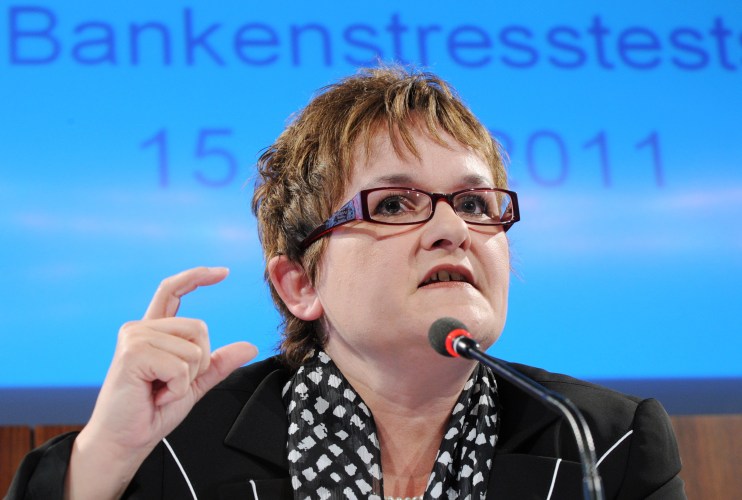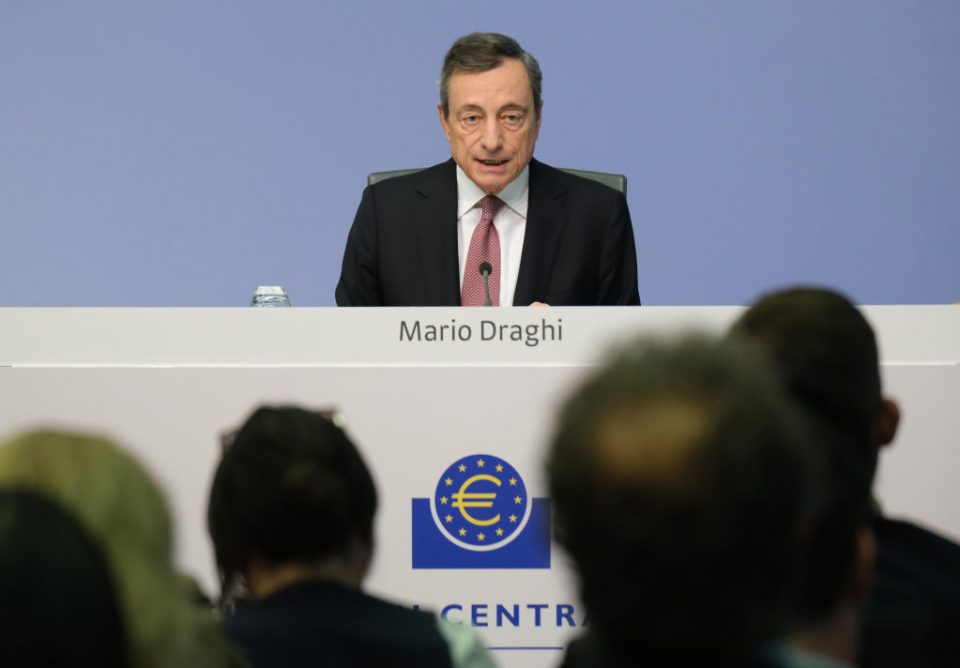ECB’s German hawk quits as bank prepares to loosen purse strings

The only woman on the European Central Bank’s board quit last night, as the bank prepares to resume pumping money into the struggling Eurozone economy.
Sabine Lautenschlaeger felt it was the right time to leave, according to reports, and will quit the bank on 31 October.
Read more: ‘We had to respond’: ECB defends move to splash cash in Eurozone
“President Mario Draghi thanked her for her instrumental role in helping set up and steer Europe-wide banking supervision, a key pillar of banking union, as well as her unwavering commitment to Europe,” an ECB statement on her departure read.
But as the most hawkish member of the bank’s 25-strong board, her decision to quit more than two years before the end of her time in office has sparked speculation that it may be linked to the resumption of quantitative easing.
Michael Hewson, chief market analyst at CMC Markets, said the ECB’s refusal to provide a reason for her departure has created uncertainty over the nature of her exit.

“It has given rise to all sorts of speculation that it was to do with the September decision to ease monetary policy further, particularly the restarting of the asset purchase program, which she, along with other ECB members was premature and unnecessary,” Hewson said.
“Lautenschlaeger was repeatedly one of the most hawkish members on the Governing Council, advocating the clichéd Bundesbank view and, as such, opposing the latest round of QE,” added Daiwa Capital Markets analyst Chris Scicluna.
But with Draghi set to leave in a matter of weeks Lautenschlaeger would have had more influence over the ECB.
“If she had disagreements with Draghi, the fact that he will be gone in the next few weeks would be an opportunity for her to help shape policy with the new incumbent Christine Lagarde when she arrives on November 1.”
Another option is that Lautenschlaeger does not want to work with Draghi’s successor, International Monetary Fund (IMF) boss Christine Lagarde, Hewson said.
“Her tenure at the IMF hasn’t exactly been a success story, as the experiences of Greece and Argentina can testify,” he pointed out.
“Judging by her track record the omens don’t look positive, and maybe that is why Lautenschlaeger decided to jump ship,” he added. “A lack of confidence in Draghi’s replacement, at a time when the European economy needs skill and expertise in navigating an economic minefield.”
It comes at a difficult time for the Eurozone, with the economy close to grinding to a halt in September as growth fell to a six-year low.
Read more: Mario Draghi will inject stimulus into Eurozone – but will it work?
Deutsche Bank’s Jim Reid said the German’s departure shows that “policy tensions are building across countries in the Euro area”.
“Lautenschlaeger is a hawk and was clearly opposed to the restarting of QE,” he said. “Given this and the relatively high dissent rate at the last meeting, it hints at very difficult meetings to come in order to rally around a consensus.”